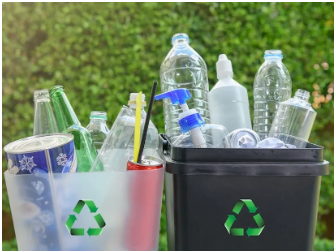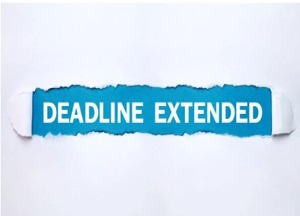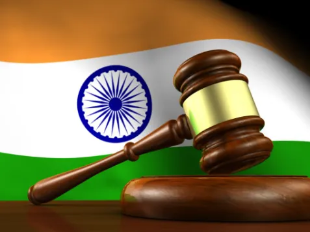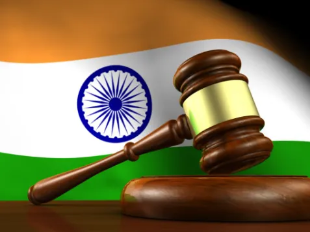India releases draft notification for plastic waste management

On 16 October 2023 the Indian Ministry of Environment, Forest and Climate Change (MoEFCC) published a draft notification in the Gazette of India for rules on plastic waste management. The rules can be referred to as the Plastic Waste Management (Second Amendment) Rules, 2023. The draft notification is open for comments for 60 days from the date of publication in the Gazette of India.
According to the draft, the manufacturers and importers of plastic packaging, products with plastic packaging, carrier bags, multi-layer packaging, or plastic sheets should comply with the registration of the concerned State Pollution Control Boards (SPCB) or Pollution Control Committee.
Plastic Packaging
Plastic packaging means packaging material made from plastics for the protection, preservation, storage, and transport of products in a variety of ways and includes the following categories:
| Category I | Rigid plastic packaging |
| Category II | Flexible plastic packaging of single layer or multilayer |
| Category III | Multilayered plastic packaging |
| Category IV | Plastic packaging made of compostable plastics |
| Category V | Plastic packaging made from biodegradable plastics |
The thickness requirement does not apply to carrier bags and commodities made from compostable plastic and biodegradable plastics. Carrier bags and commodities made from compostable plastics shall conform to the Indian Standard: IS/ISO 17088:2021 titled Specifications for Compostable Plastics, as amended from time to time. The manufacturers or sellers of compostable plastic and biodegradable plastic, carrier bags and/or commodities or both shall obtain a certificate from the Central Pollution Control Board before marketing or selling.
Extended Producer Responsibility
Producers, importers and brand owners, shall comply with the Extended Producer Responsibility (EPR) for plastic packaging of following criteria:
- Compostable and biodegradable plastics
- Multi-layered plastic sachets or pouches
The EPR targets for minimum levels of recycling (excluding end-of-life disposal) of plastic packaging waste for each category are listed in the table below:
(% of Extended Producer Responsibility Target)
| Category | 2024-25 | 2025-26 | 2026-27 | 2027-28 and onwards |
| Category I | 50 | 60 | 70 | 80 |
| Category II | 30 | 40 | 50 | 60 |
| Category III | 30 | 40 | 50 | 60 |
| Category IV | 50 | 60 | 70 | 80 |
BIS Report
In cases where the sample testing was started, before the laboratory was recognized/certified by BIS (Bureau of Indian Standards) or NABL (National Accreditation Board for Testing and Calibration Laboratories), and the report is complying with IS 17899 T:2022, the production sample should be sent to BIS for re-testing to verify the biodegradable properties.
According to BIS regulations any plastic packaging should be labelled as “compostable” or “recycled” or “biodegradable” (with a specific number of days for the product to degrade) in terms of its properties.
Registration
Any person engaged in the business of selling, manufacturing or producing raw materials or plastic products should apply for one- time registration on the CPCB web portal.
The registration guidelines are mentioned on the official website of CPCB: https://cpcb.nic.in/registration-for-brand-owner/
Every local body shall be responsible for developing and setting up infrastructure for segregation, collection, storage, transportation, processing and disposal of plastic waste either by itself or by engaging agencies or producers by undertaking assessment of plastic waste generated in a year, including legacy plastic waste, by 30th June of the next financial year and taking necessary steps to prevent stocking, distribution, sale and use of banned single-use-plastic items within its jurisdiction. Also by assessing the plastic waste management infrastructure available for collection, segregation and processing and reporting it on the CPCB website.
The report must include the following points:
- Plastic waste generated in a year, including legacy plastic waste.
- Plastic waste management infrastructure available for collection, segregation, and processing.
- Forecast of plastic waste to be generated.
- Status of development and implementation of byelaws.
- Measures taken to prevent the stocking, distribution, sale and use of prohibited single-use-plastic items.
Every registered person should complete the annual report. The report can be filled by submitting details on the CBCP web portal. Below are the forms that can be submitted by the respective obligated entities:
| Forms no. | Obligated Entities | Deadlines |
| Form IV | Every person engaged in the recycling or processing of plastic waste | 30 April |
| Form V | Every urban local body as well as Panchayati Raj Institution at District Level | 30 June |
| Form VI | Each State Pollution Control Board or Pollution Control Committee | 31 July |
| Form VII | Every manufacturer and importer of plastic raw material | 30 June |
The full text of the draft Plastic Waste Management (Second Amendment) Rules, 2023 can be found here.




